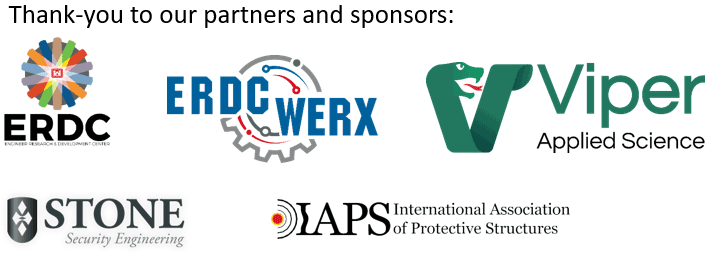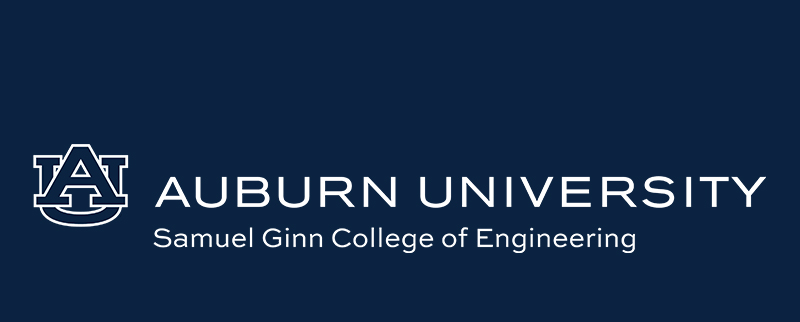College of Engineering / ICPS6 Conference

Dear Colleagues:
On behalf of the International Association of Protective Structures, Dr. Catie Stephens and I invite you to participate in the 6th International Conference on Protective Structures to be convened at Auburn University on May 14, 2023. This will be the first ICPS in this region of the world and represents a rare opportunity to interact and share with peers and researchers of other countries on this very important subject. Please add ICPS6 to your calendar.
Sincerely,
James S. Davidson
Gottlieb Professor of Structural Engineering
Auburn University
Catherine S. Stephens
Director, International Research Office
U.S. Army Engineer Research and Development Center
Mission and Theme
The 6 th International Conference on Protective Structures will be convened at Auburn University. This will be the first ICPS in this region of the world and represents a rare opportunity to interact and share with peers and researchers of other nations on this very important subject. The overall mission of ICPS is to promote protective structures research and facilitate interaction between researchers on an international scale. It is one component of a three colleague-development and dissemination mechanism: (1) ICPS, (2) International Association of Protective Structures , and (3) International Journal of Protective Structures. The conference will focus on basic and applied research for the protection of civil infrastructure (buildings, bridges, pipelines, dams, etc.) against natural and man-made explosion, impact and other extreme loadings. The conference follows the 1 st ICPS in Manchester England in 2010, and 2 nd ICPS/ISIEMS in Potsdam Germany in 2013, 3 rd ICPS in Newcastle Australia in 2015, 4 th ICPS in Beijing China in 2016 and 5 th ICPS in Poznan Poland in 2018.
Topics
The conference welcomes presentations on a broad range of analytical and experimental research associated with protection of persons and assets against extreme loading such as explosions (deliberate and accidental), tsunamis, extreme wind, vehicle impact, etc. Example topics of interest include but are not limited to the following:
- Response of structures and structural elements to explosion and impact loads
- Blast and impact resistant design of structures
- Techniques for mitigating blast load and penetration effects
- Strengthening and retrofitting techniques
- Projectile penetration and perforation mechanics
- Collateral damage estimation
- Numerical simulation and modelling
- Probabilistic and uncertainty modelling
- Experimental techniques
- Material behavior at high strain rates
- Vehicle impact with civil structures
- Protection of industrial structures
- Impact induced by tsunamis, extreme wind, and other natural disasters
- Innovative materials for protection applications
- Bridge and tunnel protection
- Post-event evaluation and performance assessment
- Structural collapse mitigation strategies
- Safety, reliability and cost-effectiveness of structural design and strengthening
COUNTRIES
Argentina
Australia
Belgium
Canada
China
Czech Republic
Egypt
France
Georgia
Germany
India
Israel
Italy
Japan
Morocco
Netherlands
Poland
Russia
Scotland
Singapore
South Korea
Spain
Sweden
Tunisia
UAE
UK
USA
INSTITUTIONS AND LABORATORIES
Auburn University, USA
Aviation School of Borj El Amri, Tunisia
Battelle Memorial Institute, USA
Beijing Institute of Technology, China
Ben-Gurion University of the Negev, Israel
Carlos III University of Madrid, Spain
Chalmers University of Technology, Sweden
Construction Research Centre, National Research Council Canada
Curtin University, Australia
Czech Technical University in Prague, Czech Republic
Dalian University of Technology, China
Defence Metallurgical Research Laboratory, India
Ecole Polytechnique d’Agadir, Morocco
Eindhoven University of Technology, Netherlands
Fraunhofer Institute for High-Speed Dynamics, Ernst-Mach-Institut EMI, Germany
French-German Research Institute of Saint-Louis, France
George Mason University, USA
Georgia Institute of Technology, USA
Georgian Technical University, Georgia
Guangzhou University, China
Imperial College London, UK
ICITECH-Universitat Politècnica de València, Spain
Indian Institute of Technology Kharagpur, India
Institute of Construction Materials, Technische Universität Dresden, Germany
Institute for Structural Engineering, University of Armed Forces, Germany
Institute of Technology (IIT) Delhi, India
Iowa State University, USA
Kangwon National University, South Korea
Korea Institute of Civil Engineering and Building Technology, South Korea
Korea Institute of Ocean Science and Technology, South Korea
Korea University, South Korea
Laboratory for Concrete Structures and Structural Engineering, Munich University of Applied Sciences, Germany
Lehigh University, USA
Leibniz University Hannover, Germany
Lorraine University, France
Materials and Process Mechanics Laboratory (LMMP), National Superior School of Engineers of Tunis (ENSIT), Tunisia
Missouri University of Science and Technology, USA
Michigan State University, USA
Muroran Institute of Technology, Japan
Muslim University, India
National Defense Academy, Japan
National University of Singapore
Netherlands Organisation for Applied Scientific Research (TNO)
Ocean University of China
Paris-Saclay University, France
Poznan University of Technology, Poland
Purdue University, USA
Purdue Applied Research Institute, USA
RMIT University, Australia
Royal Military Academy, Propellant Explosives and Blast Engineering Department, Belgium
Sami-Shamoon College of Engineering, Israel
Sandia National Laboratories, USA
Sejong University, South Korea
Seoul National University, South Korea
Shamoon College of Engineering, Israel
Southern Illinois University, USA
Southern University and A&M College, USA
Steel Construction Institute (SCI), UK
Technology Innovation Institute, UAE
Technische Universität Dresden, Germany
Technion – Israel Institute of Technology
Tianjin University, China
Tokai University, Japan
Tomsk State University, Russia
Tongji University, China
Tsulukidze Mining Institute, Georgia
United States Military Academy, USA
University of the Bundeswehr Munich, Germany
University of Connecticut, USA
University of Idaho, USA
University of Manchester, UK
University of Melbourne, Australia
University of Missouri, USA
Universidad Nacional de Cuyo, Argentina
University of Nebraska–Lincoln, USA
University of Ottawa, Canada
Universidad Politécnica de Madrid, Spain
University of Sheffield, UK
University of South Carolina, USA
University of Technology Sydney, Australia
University of Tennessee, USA
University of Texas at Austin, USA
University of Toronto, Canada
University of Waterloo, Canada
University of Wollongong, Australia
Utah State University, USA
Virginia Polytechnic Institute and State University, USA
Vrije Universiteit Brussels, Belgium
Wuhan University of Technology, China
INDUSTRY
AECOM, USA
AG&E Structural Engenuity
Applied Research Associates, USA
Applied Science International LLC, USA
Arup, Australia and USA
Atlas Engineering, Inc., USA
AWE, UK
Baker Engineering and Risk Consultants, Inc., USA
Blastech Ltd, UK
Browning Solutions, LLC, USA
CAEwiz Consulting AS, Sweden
DNV Spadeadam Research and Testing, UK
ELU Konsult AB, Sweden
Explora Security Ltd., UK
Exponent, Inc., USA
FHECOR North America
FLUOR Mission Solutions, USA
Glasslock, Inc., USA
Gerhart Cole Inc., USA
Karagozian & Case, Australia, USA
Koken Engineering Co., Ltd., Japan
KPFF Protective Design, USA
Jacob GmbH, Germany
The MAJAM Group Pty Ltd., Australia
Norconsult AB, Sweden
nou Systems Inc., USA
Prostruct Consulting Pte Ltd, Singapore
Protection Engineering Consultants, USA
Stone Security Engineering, PC, USA
Taisei Corp., Japan
Taiheiyo Cement Corporation, Japan
Viper Applied Science, Scotland, UK


